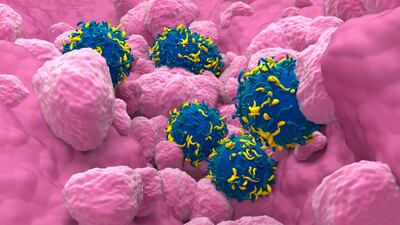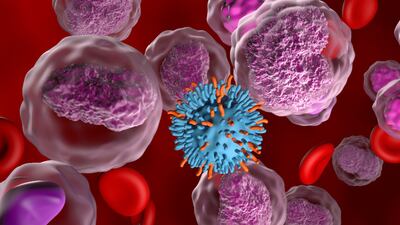
Immuno-oncology

The exact causes leading to Chinese authorities’ investigation of the UK major remain unclear at this point, but its key oncology drugs are facing fierce local competition from homegrown rivals.

Panels at the recent BioFuture conference focused on the next breakthroughs in areas such as oncology and neurodegenerative diseases, continuing challenges to GLP-1 agonists, financing and how use of AI is taking shape.

Troubled GlycoMimetics will merge with Crescent, bringing its PD-1- and VEGF-targeting bispecific CR-001 and gaining a public listing. Crescent also will raise $200m to help position itself against PD-1xVEGF leaders Akeso/Summit and BioNTech.

ZL-1310, a DLL3-targeting ADC, has shown a 74% objective response rate in extensive-stage small cell lung cancer after platinum-based chemotherapy, making it a new contender in this setting.

Although from a small Phase I/Ib study, Arcus presents data showing better response rate, disease control and tolerability for casdatifan compared to Merck’s approved renal cell carcinoma drug Welireg.

The company and partner OncoC4 remain tight-lipped on what’s behind the partial hold in the NSCLC study of gotistobart, which could impact BioNTech’s nascent oncology plans.

CEO Nicolas Poirier talked to Scrip about the development plans for two late-stage assets: a therapeutic cancer vaccine and an IL-7 antagonist for ulcerative colitis.

The TCR therapy showed strong efficacy and durability in patients with previously treated melanoma. A Phase III pivotal trial is due to start in December.

PD-1 inhibitor Opdivo has obtained US FDA approval for pre- and post-surgical treatment in operable non-small cell lung cancer, but Merck and AstraZeneca got there first.

The biotech is cutting jobs and discontinuing development of its anti-CD47 bispecific for blood cancers and moving its focus to SL-325, which targets the TL1A-DR3 axis in autoimmune diseases.

New data from CARTITUDE-4 show a survival benefit in patients with lenalidomide-refractory patients as early as the second line, along with Carvykti being studied for frontline use.

Nine months after Bristol Myers Squibb’s LAG-3/PD-L1 combination Opdualag failed a Phase III trial in microsatellite stable metastatic colorectal cancer, Merck & Co's fixed-dose combo of favezelimab and Keytruda has suffered the same fate in the indication.

Amgen’s Imdelltra for small-cell lung cancer is one of two bispecific T-cell engagers approved for solid tumors, but data at the WCLC meeting show other DLL3-targeting BiTEs may be on the way.

Gilead’s divestment from a 50-50 joint venture with local partner, which came to light recently, will leave China’s cell therapies market under the total control of domestic players in the coming years.

The company’s investment in oncology is starting to pay off, with its PD-L1/VEGF inhibitor BNT324 generating particular interest at ESMO.

Phase II data at the ESMO meeting showed promising efficacy for the drug beyond NSCLC, particularly in certain indications of colorectal and head-and-neck cancers.

AstraZeneca’s NIAGARA trial of perioperative Imfinzi in bladder cancer was positively received at the ESMO meeting but its design did not distinguish the contributions of each treatment portion to the overall effect – something that the US FDA is likely to have a view on.

Merck & Co has presented lots of data on its huge-earning checkpoint inhibitor at the Barcelona congress, the highlights being impressive first-time overall survival results for Keytruda in cervical cancer and early-stage triple-negative breast cancer.

Persistence has paid off for Incyte’s Zynyz in anal cancer with a Phase III win that should make up for a previous disappointment at the FDA and give a boost to the firm’s pipeline prospects for a post-Jakafi era.

While oncology heavyweights Roche and Merck & Co have failed to make much headway with their in-house TIGIT offerings, hopes are high for iTeos's belrestotug in combination with GSK's checkpoint inhibitor, Jemperli, which has demonstrated promising response rates for non-small cell lung cancer in the Phase II GALAXIES Lung-201 study.